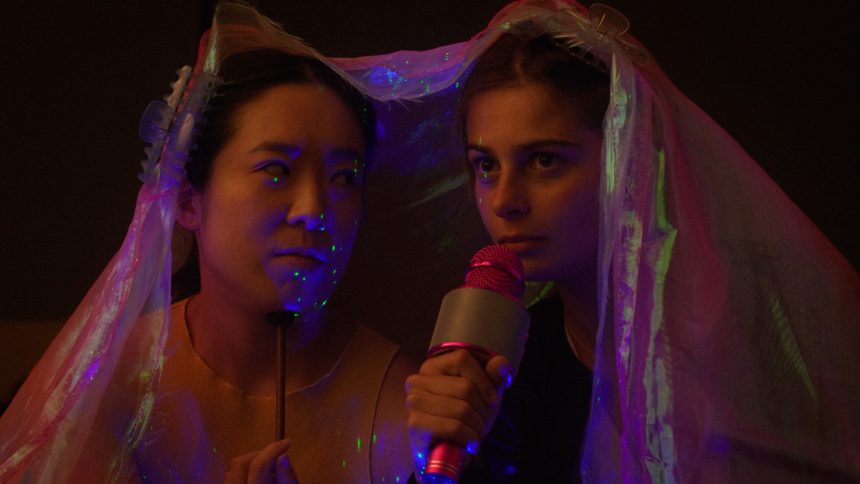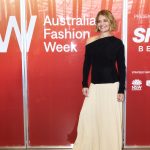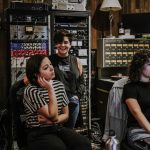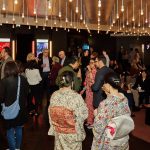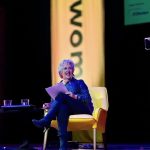There’s something deliciously subversive about naming a debut feature FWENDS—with all the tween-chatroom energy that implies—and then taking home the Innovation Award at Berlinale’s Forum, one of global cinema’s most discerning platforms. But that’s exactly what Australian director Sophie Somerville has done. Her debut feature is now building a quiet groundswell ahead of its Australian premiere at Sydney Film Festival 2025, after turning heads in Berlin and on the European circuit. We sat down with Somerville for an early peek behind the curtain—on improvised filmmaking, girlhood, and what it means to make a film about friendship while drawing on your own.
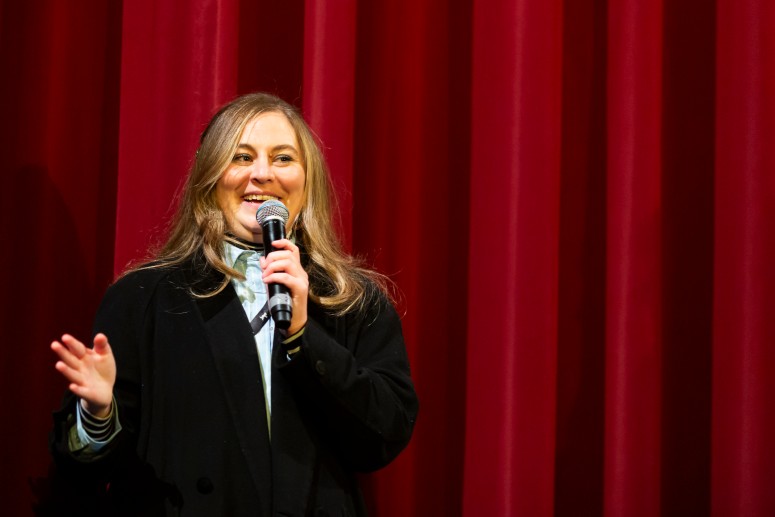
Congratulations on the Berlinale prize. That’s huge for a debut.
Sophie Somerville: Yes, we were stoked! We didn’t expect anything going in—it was our first time at Berlinale. The Innovation Award is given to a film in the Forum section that’s pushing cinematic boundaries. They described it as “thematic and formal innovation,” which sounds very serious for a film called FWENDS, but that’s what we were aiming for—something that challenges how a story can be told.
And you didn’t know if the film would translate internationally?
Not at all. We made it on a shoestring, and it’s really specific to our world—our generation, our cities, our people. So we weren’t sure how it would land in Berlin. But that’s what made the recognition so meaningful.
For audiences perusing the Sydney Film Festival program right now, what are they going to find in FWENDS?
It’s a very intimate story—two young women reconnect over a weekend in Melbourne. It starts with a kind of polite distance between them and slowly unravels into something more honest, more intense. It’s about the gap between what we say and what we actually feel—how hard it is to ask for what we need. But it’s also funny. There’s levity in there too.
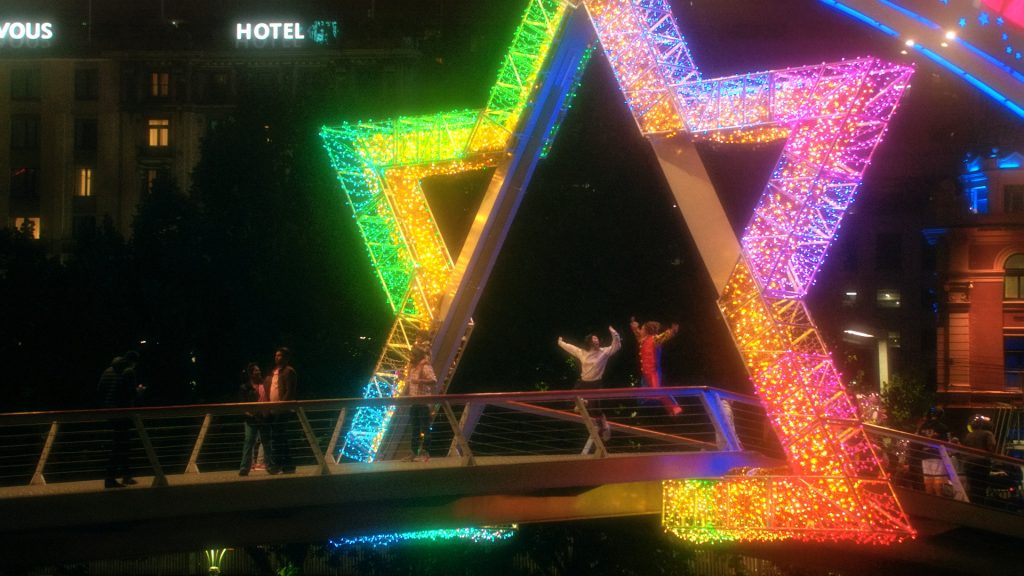
You’ve always had a keen eye for female friendship—does that come from a more personal or observational lens?
Honestly, it comes from my own life. My previous short films focused on the messy inner lives of girls and women, especially in friendships. There’s so much there—humour, tension, competition, care. I think FWENDS is an extension of that curiosity. This time, we took the guerrilla filmmaking style of the shorts and applied it to a whole city.
The city we’re talking about is Melbourne – you’ve really brought out a strong visual element of the city in the film.
I wanted to show Melbourne in a way we don’t often see on film—real, unfiltered, poetic in its chaos. I spent ages just walking, finding places that felt lived-in and cinematic. The city becomes a kind of third character in the film. We shot over Christmas, so there were decorations and coloured lights everywhere. We tried to see constraints as opportunities. Not “What can’t we afford?” but “What does the world already offer us?” That shift in mindset made everything feel more abundant.
There’s such a naturalism to the way these two friends are kind of riffing off each other. How much of it was scripted versus improvised and how did your other work lead you to this feature?
I’d experimented with improvisation in previous shorts, but this time we went all in. There was a treatment, but no script. Melissa and Emmanuel—our two leads—really trusted the process. We workshopped for a while before shooting, so by the time the cameras rolled, they knew the characters inside out. And we committed to long takes—some were ten minutes. It meant we could capture moments as they unfolded, not manufactured in editing. Sometimes the crew didn’t know what was coming next. We’d all be surprised together. That’s how some of my favourite moments happened—things that were never planned but just… arrived.
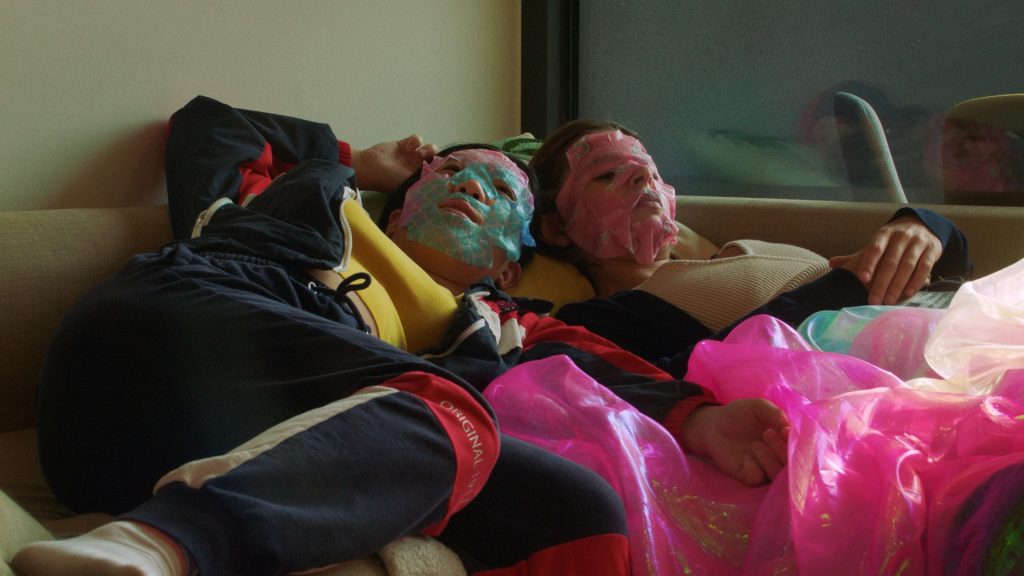
So was it a big edit? With all the improvisation?
Not a lot was left on the cutting room floor, because we were very economical with what we shot. One standout scene—a long, emotional confrontation—just happened. The actors went there, and we followed. That’s the joy of improvisation: when it works, it’s magic.
You’re really getting around now on the international circuit. Which festivals are special to you?
Sydney Film Festival has always been amazing to us. Same with MIFF—being Melbourne-based, it’s close to home. But Berlinale? That was next level. It’s a city full of young people, and the festival doesn’t feel closed. Tickets are affordable, and audiences are curious. We’re also heading to Valencia next, and New Horizons in Poland, which are both known for spotlighting younger filmmakers and low-budget work. That feels like our world.
Did you have mentors or networks that you feel helped you along the way?
I had a brilliant tutor at VCA—Adrian Holmes—who stayed in my life post-uni. He’s mentored so many of us. But honestly, the most powerful thing has been my peers. Friends who are also making things, figuring it out, encouraging each other when it gets tough. That’s the ecosystem that really sustains you—more than any grant or institution.
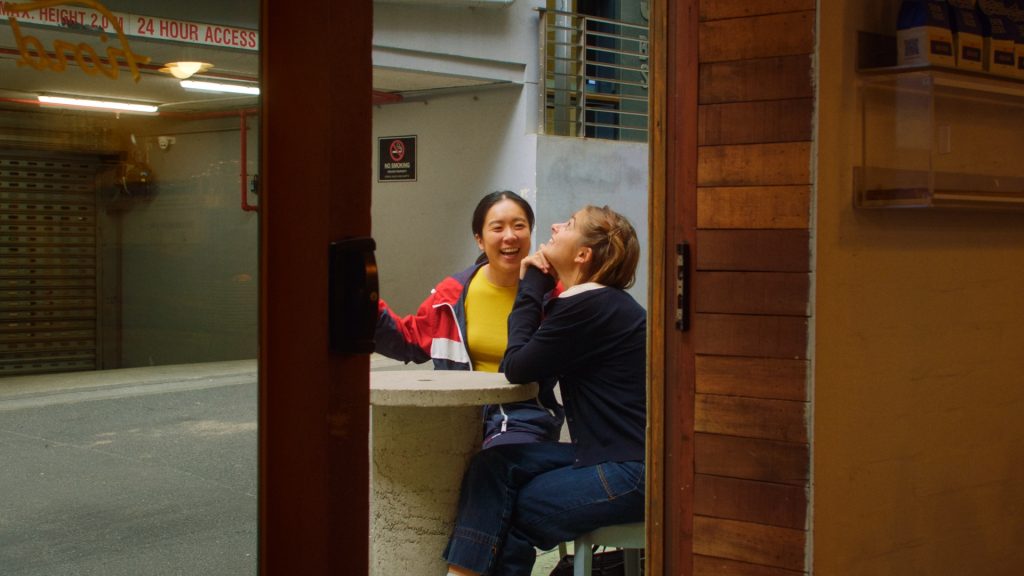
That tracks with the theme of the film too—friendship as a life force.
Exactly. The whole idea behind FWENDS was born out of that—how much we need each other, and how bad we can be at showing it. The characters were always meant to have a backstory as high school friends who drifted apart. That’s not in the film explicitly, but it was in our heads. They reconnect in the film, awkwardly at first, and then more honestly. It’s not neat. But that’s the point.
The film is about the gaps between people. Do you think all the social media and the layer of technology between people means younger generations can struggle more with connection?
I don’t know. I get asked that a lot. But I’ve only lived in this generation—I can’t compare it to others. Yes, we have phones and social media, and maybe those things complicate communication. But I think the core challenge has always been the same. It’s hard to say: “I need you.”
And that title—FWENDS—it’s unexpected for something being called “formally innovative.” Tell us about the name.
That’s exactly why I liked it. It’s kind of girly, kind of unserious. But we made this film that some people are calling “art house,” and I liked putting those two things together. Reclaiming the softness and showing it has weight. It’s like when you see an old friend and suddenly you’re both 16 again. That space of regression and nostalgia—that’s what the title holds.
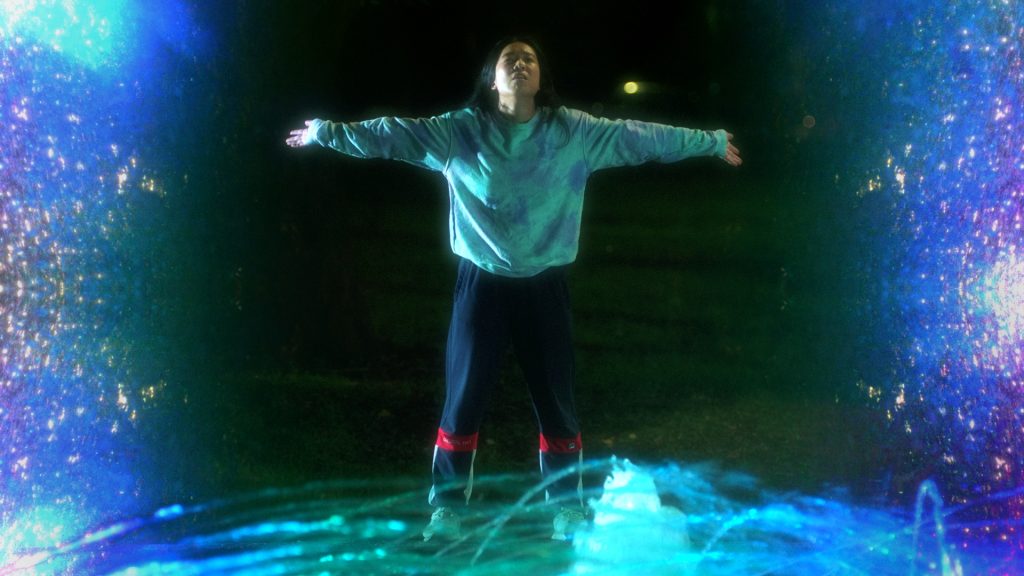
What advice would you give to someone making their first film?
Love your people. Seriously. Your collaborators are everything. Especially on a micro-budget—if people are giving you their time, make it worth their while. Mutual respect and kindness go a long way. It’s not just about the product—it’s about how you make it.
Who inspires you as a filmmaker?
Agnès Varda. I love that she just kept making things—playful, poetic, unapologetically her. Also Hirokazu Kore-eda. The empathy in his work is something I strive for. And honestly? The Sound of Music. It’s a perfect film.
FWENDS, written and directed by Sophie Somerville, screens as part of the 2025 Sydney Film Festival. The film received the Innovation Prize at Berlinale’s Forum section earlier this year and continues to screen across Europe.




